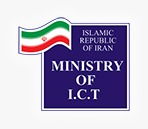The Future of Jobs: Opportunities and Challenges in ICT-centric Economies
The Ministry of ICT Islamic Republic of Iran

Session 217
Information and Communication technologies (ICT) sector has experienced many disruptive technological trends recently; some of which has been established and some are still ongoing. These new technological trends in collaboration with some other paradigms such as industry 4.0, are making dramatic changes in IT sector. These trends are influencing IT from two main prospective:
1. Products and services
2. New IT-based processes in organizations
One of the most challenging impacts of these trends is utilizing IT instead of many organizational routines. In this regard, IT can change the concept of jobs. Many of the current activities which are done by humans can be replaced by IT-based processes without human intervention. Many traditional jobs will disappear and many new job positions may evolve. So, some important questions may raise:
· What will be the future of jobs?
· What are the threats and opportunities of this new paradigm for the traditional and modern employees or educated and uneducated employees?
· What challenges may occur in ICT-Centric economies?
· What are possible solutions?
· What are the core capabilities regarding the future of jobs in ICT sub-sectors and how developing countries can promote and train these capabilities to educated and uneducated employees?
In this panel we aim to investigate possible answers to these questions from several prospective. We are going to share this challenging future trend with different stakeholders.
Moderator
Dr Mehdi Mohammadi
Speakers/Panellists
Dr Mehdi Mohammadi Secretary general of digital economy and smart technology development council in vice presidency for science and technology Iran
Dr. Ekkehard Ernst Chief Macroeconomic policies and jobs unit Research Department International Labour Organization
Dr. Janine Berg, Senior Economist at the ILO
Dr Christina Colclough, Director of Platform and Agency Workers, Digitalisation and Trade
Mehdi Fasanghari, Director General of the Strategic Management, Ministry of ICT of Iran
Mohammadreza Ghaderikarkani, Member of the Board, I.R.Iran National Post Company
Session's link to WSIS Action Lines
-
 C1. The role of public governance authorities and all stakeholders in the promotion of ICTs for development
C1. The role of public governance authorities and all stakeholders in the promotion of ICTs for development
-
 C2. Information and communication infrastructure
C2. Information and communication infrastructure
-
 C4. Capacity building
C4. Capacity building
Session's link to Sustainable Development Process
-
 Goal 4: Ensure inclusive and equitable quality education and promote lifelong learning opportunities for all
Goal 4: Ensure inclusive and equitable quality education and promote lifelong learning opportunities for all
-
 Goal 8: Promote inclusive and sustainable economic growth, employment and decent work for all
Goal 8: Promote inclusive and sustainable economic growth, employment and decent work for all
-
 Goal 9: Build resilient infrastructure, promote sustainable industrialization and foster innovation
Goal 9: Build resilient infrastructure, promote sustainable industrialization and foster innovation